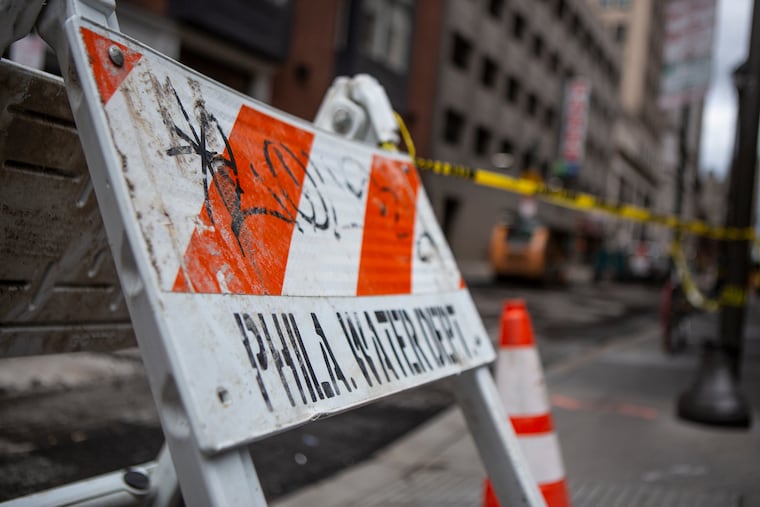Philadelphia seeks 17.6% water rate increase, citing revenue erosion from pandemic
The Water Department blamed a dramatic fall in revenue last year after the city barred shut-offs of customers behind on their bills.

Citing a financial hit from the pandemic, the Philadelphia Water Department on Tuesday announced it was seeking a 17.6% residential rate increase phased in over two years that would boost a typical customer’s bill by $11.72 a month.
The agency said it was forced to seek the steep increase because it deferred hiking prices last year during the COVID-19 outbreak. It also blamed a dramatic fall in revenue last year after the city barred shut-offs of customers behind on their bills.
Those factors, plus a reduction in revenues due to the pandemic, “created a ‘perfect storm’ of issues for PWD which, if left unaddressed, will be debilitating for the department’s finances,” Water Commission Randy E. Hayman said in testimony submitted to the city’s Water Rate Board.
A typical residential bill for a customer using 500 cubic feet of water a month (3,740 gallons) would increase $7.74 a month to $74.47, or 11.6%, on Sept. 1, under the proposal. Bills would increase an additional $3.98 to $78.45 on Sept. 1, 2022, or 5.3%.
The total increase over two years would amount to 17.6%.
About 154,000 of the city’s 496,000 water accounts had fallen behind on payments by the end of September, according to data the Water Department submitted to the Water Rate Board. Collection rates appear to be 10% lower than the historical average, the city said.
Nearly 70,000 customers are so far behind they could face a service shutoff when the moratorium on termination during the winter is scheduled to be lifted on April 1.
Even if crews turned off 400 account a day, it would take 40 weeks to stop service to those 70,000 customers — though only 32 weeks a year are available for shut-offs, Susan M. Crosby, the deputy revenue commissioner, and RaVonne A. Muhammad, assistant director of finance, said in written testimony.
The city-owned Water Department provides water, wastewater, and storm water services in the city, and also serves several suburban municipalities as wholesale customers. All told, it provides water service to about 2 million people.
The rate increase request, which applies only to city customers, would generate an additional $49 million in the first year and an additional $32 million in the second year. The city said it needs more money to maintain existing service, improve infrastructure, offset lower collections and consumption, and replenish “limited financial reserves.”
The five-member Water, Sewer, and Storm Water Rate Board was created as an independent body by a 2012 Home Rule Charter change. It will schedule public hearings and technical hearings to evaluate the proposed rate request. A final decision is expected by June 16.
The rate board last granted the water department an increase in 2018, when it allowed water bills to increase only about 1% over two years. The Water Department had requested an 11% increase over two years.
The Water Department took steps last year to seek a rate increase that would have gone into effect last September, but abandoned the move amid the coronavirus outbreak.
This article was corrected to reflect that the total rate increase over two years would amount to 17.6%.